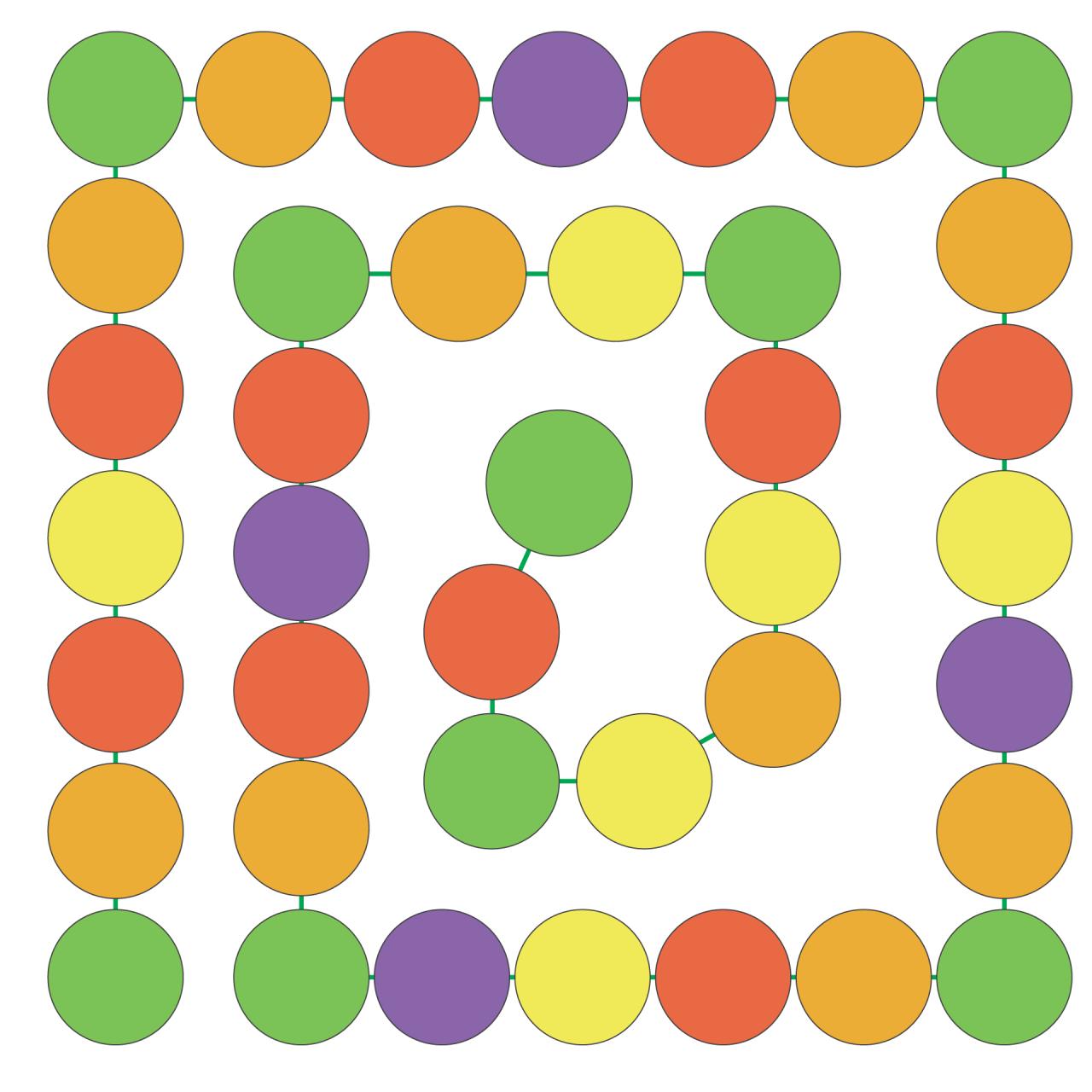Game PC enthusiasts know that the world of gaming is vast and diverse, offering a multitude of experiences tailored to every type of player. From thrilling single-player adventures to engaging multiplayer battles, the realm of PC gaming has evolved significantly over the years. This exploration dives into the most popular game genres, essential hardware components, and the software platforms that shape the gaming experience today.
Whether you’re a fan of immersive RPGs or competitive shooters, understanding the key features of these genres, the specifications needed for high-performance systems, and the best gaming platforms can enhance your overall gaming journey. Join us as we unpack the essentials of building a top-notch gaming PC and navigating the software landscape.
Popular Game Genres for PC

The world of PC gaming is vast and diverse, encompassing a variety of genres that cater to different player preferences and experiences. Each genre brings its unique elements to the table, offering players multiple ways to engage with the gameplay. This discussion will delve into the key features of the top three genres, compare single-player and multiplayer experiences, and explore the evolution of role-playing games (RPGs) over the last decade.
Key Features of Top Game Genres
The following genres dominate the PC gaming landscape due to their engaging mechanics and immersive experiences:
- Action/Adventure: Action/adventure games combine physical challenges with narrative-driven storytelling. Players often navigate expansive worlds filled with quests, puzzles, and combat, enhancing both reflexes and strategic thinking. A notable example is “The Witcher 3: Wild Hunt,” which showcases open-world exploration coupled with rich lore.
- First-Person Shooter (FPS): FPS games emphasize gunplay and fast-paced action from the player’s perspective. Key features include multiplayer modes, competitive gameplay, and a variety of weaponry. Titles like “Counter-Strike: Global Offensive” exemplify the genre’s focus on teamwork and skill.
- Real-Time Strategy (RTS): RTS games require players to manage resources, build units, and strategize in real-time. They often involve complex decision-making and tactical planning. “StarCraft II” remains a hallmark of the genre, known for its deep mechanics and competitive esports scene.
Comparison of Single-Player and Multiplayer Games
Single-player games offer a solitary experience where players engage with storylines and environments at their own pace. These games often emphasize narrative depth and character development, allowing for a more personal connection to the game’s world and characters. In contrast, multiplayer games foster community involvement and competition. Players interact with others, forming teams or competing against each other, which can lead to dynamic and unpredictable gameplay experiences.
“While single-player games provide an immersive journey, multiplayer games cultivate a thriving community.”
The choice between single-player and multiplayer can significantly impact player engagement. Single-player titles may encourage prolonged focus on story and gameplay mechanics, whereas multiplayer games often rely on social interaction and teamwork, drawing players back for ongoing competitions and events.
Evolution of Role-Playing Games (RPGs) on PC
Over the last decade, RPGs on PC have undergone significant transformation, driven by advancements in technology and player expectations. Initially defined by turn-based mechanics and rigid narratives, modern RPGs now embrace open-world designs, branching storylines, and dynamic character customization.
Many RPGs have adapted to incorporate elements from other genres, such as action mechanics in “Dark Souls” or the life-simulation aspects present in “The Sims 4.” Furthermore, the rise of online multiplayer capabilities has led to the emergence of MMORPGs (Massively Multiplayer Online Role-Playing Games), with titles like “World of Warcraft” setting benchmarks for community engagement and expansive storytelling.
Overall, as technology advances, RPGs continue to evolve, offering deeper narratives, more complex character interactions, and increasingly immersive worlds, thus capturing the interests of both veteran and new players alike.
Essential Hardware Components for Gaming PCs: Game Pc

Building a high-performance gaming PC requires a careful selection of hardware components that can handle demanding games and applications. Whether you’re a casual gamer or a hardcore enthusiast, understanding the specifications needed for each component is crucial to ensure optimal performance and longevity.
The core components of a gaming PC include the CPU, GPU, RAM, and storage, each playing a vital role in the system’s overall performance. Selecting the right specifications for these components is essential to achieve a smooth and enjoyable gaming experience.
Specifications for High-Performance Gaming PCs
The performance of a gaming PC largely depends on its hardware specifications. Here are the key components to consider:
– CPU (Processor): The CPU is the brain of the gaming PC. For gaming, a minimum of a quad-core processor is recommended, but six-core or higher processors like the AMD Ryzen 5 5600X or Intel Core i7-11700K provide superior performance, especially in CPU-intensive titles.
– GPU (Graphics Card): The GPU is crucial for rendering graphics. A high-end graphics card such as the NVIDIA GeForce RTX 3080 or AMD Radeon RX 6800 XT is essential for 1440p or 4K gaming.
– RAM (Memory): A minimum of 16GB of RAM is recommended for gaming. For optimal performance, consider 32GB, especially for multitasking or streaming while gaming.
– Storage: Solid State Drives (SSDs) are preferred for faster load times. A combination of a 1TB SSD and a 2TB HDD provides a balance of speed and storage capacity.
Top Five Graphics Cards Available in the Market
The choice of a graphics card can significantly impact gaming performance. Below is a list of the top five graphics cards currently available, along with their performance metrics:
- NVIDIA GeForce RTX 4090: Offers exceptional 4K gaming performance with 24GB GDDR6X memory, capable of handling the latest titles at ultra settings.
- NVIDIA GeForce RTX 4080: A powerful choice for 4K gaming, featuring 16GB GDDR6X memory, delivering high frame rates with ray tracing enabled.
- AMD Radeon RX 7900 XTX: Known for its efficiency, it comes with 24GB GDDR6 memory, providing excellent performance in 4K gaming.
- NVIDIA GeForce RTX 3070: A mid-range card that performs well in 1440p gaming, equipped with 8GB GDDR6 memory, ideal for budget-conscious gamers.
- AMD Radeon RX 6800 XT: A strong contender for 1440p and 4K gaming, featuring 16GB GDDR6 memory, offering great value for performance.
Best Practices for Building a Custom Gaming PC
Building a custom gaming PC can be rewarding but requires attention to detail, especially regarding component compatibility and assembly. Follow these best practices for a successful build:
1. Compatibility: Ensure that all components are compatible with each other. Check the motherboard’s CPU socket type and RAM compatibility, and confirm that the PSU has sufficient wattage for the GPU.
2. Assembly Tips: Start by installing the CPU and RAM onto the motherboard outside the case for easier access. Use an anti-static wrist strap to avoid damaging components when assembling.
3. Cable Management: Organize cables to promote airflow within the case. Use zip ties to bundle cables together, ensuring they do not obstruct any fans or vents.
4. Cooling Solutions: Invest in proper cooling solutions, such as aftermarket CPU coolers or case fans, to maintain optimal temperatures during gaming sessions.
5. Testing Before Sealing: Before closing the case, connect all components and perform a power-on test to ensure everything is functioning correctly.
Remember, a well-built gaming PC not only enhances gaming performance but also can be upgraded easily in the future.
Gaming Software and Platforms

In the world of PC gaming, the choice of software and platforms can greatly influence the overall gaming experience. Different platforms offer unique features, game libraries, and user interfaces that cater to various preferences. Understanding these differences can help gamers make more informed decisions about where to purchase and play their favorite titles.
Comparison of Popular Gaming Platforms, Game pc
When evaluating gaming platforms like Steam, Epic Games Store, and GOG, it’s essential to consider their user experience and game offerings. Each platform has its strengths and weaknesses, impacting how players interact with their games.
- Steam: Known for its extensive library and user-friendly interface, Steam is a go-to for many gamers. It offers community features like friend lists, user reviews, and workshops for modding. The platform frequently hosts sales, providing great deals on popular titles.
- Epic Games Store: Launched later than Steam, Epic has gained traction by offering exclusive titles and regular free games. Its interface is simpler, focusing on a streamlined shopping experience. However, it lacks some of the community features found on Steam, which might be a downside for some users.
- GOG: GOG stands for Good Old Games, emphasizing DRM-free gaming. It caters to those who prefer owning their games outright without restrictions. GOG also has a significant collection of classic titles, appealing to nostalgia, though its library is smaller compared to Steam and Epic.
Gaming Subscription Services Comparison
Subscription services have become popular for gamers looking to access a wide range of titles at a fixed cost. Below is a comparison of prominent gaming subscription services, focusing on their costs, features, and game libraries.
| Service | Cost | Features | Game Library |
|---|---|---|---|
| Xbox Game Pass for PC | $9.99/month | Access to hundreds of games, cloud gaming options, and new titles on release day. | Includes first-party Xbox titles and many third-party games. |
| EA Play | $4.99/month or $29.99/year | Early access to new EA games, discounts, and access to a library of classic EA titles. | Focuses on EA games such as sports titles and popular franchises. |
| Humble Choice | $19.99/month | Choice of games every month, bundle discounts, and charity support. | Varied library with indie and popular titles, changing monthly. |
Essential Software Tools for Gaming Performance
Optimizing gaming performance on a PC requires a variety of software tools. These tools ensure that the system runs smoothly and efficiently, enhancing the overall gaming experience.
- Graphics Drivers: Keeping graphics drivers updated is crucial for performance. These drivers optimize how the GPU handles rendering and can significantly affect frame rates and visual fidelity.
- Game Launchers: Different game launchers often provide unique features. For instance, NVIDIA GeForce Experience optimizes game settings based on hardware specifications, while Steam’s launcher includes community features and cloud saving.
- Performance Monitoring Tools: Software like MSI Afterburner or HWMonitor helps track system performance. These tools can display real-time stats such as temperature, usage, and frame rates, allowing players to tweak settings for optimal performance.
- System Utilities: Applications like CCleaner can help maintain system health by cleaning up unused files and optimizing startup processes, leading to improved performance during gaming sessions.
If you’re looking for a fun way to pass the time, exploring mini games online can be a great option. These games often require little commitment, allowing you to jump in and out whenever you like. Whether you enjoy puzzles, action, or strategy, there’s something for everyone in the world of mini games, making them perfect for quick entertainment.
If you’re looking for a fun way to pass the time, exploring mini games online can be a great choice. These games offer quick entertainment and are perfect for a short break. Whether you’re into puzzles or action, there’s something for everyone. You can easily access them on various platforms, making it convenient to play whenever you want.

